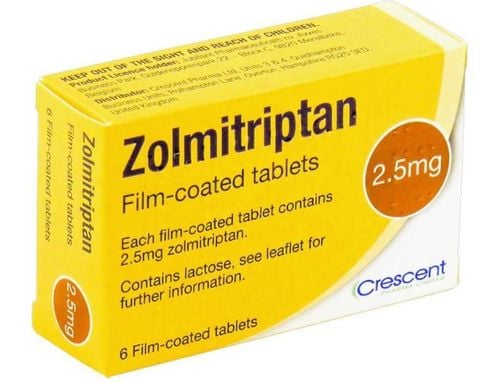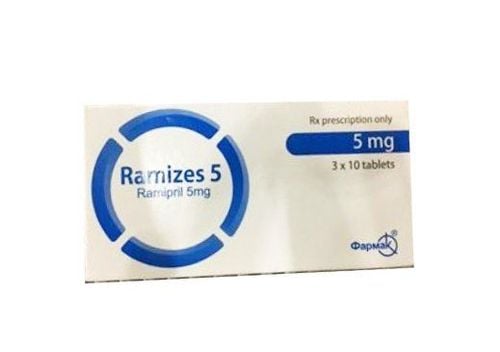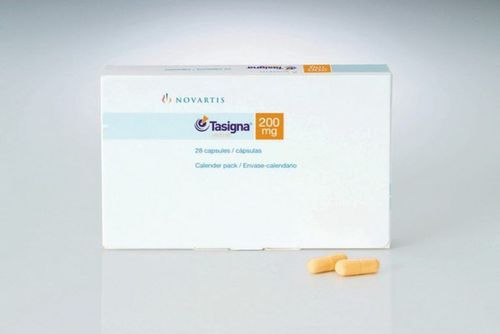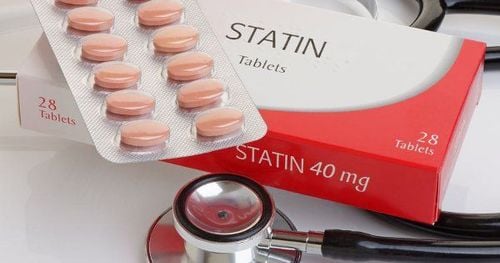This is an automatically translated article.
Vaslaselli is a relatively commonly used cardiovascular drug, especially in the treatment of angina. So what is Vaslaselli and how is it used? How to use drugs effectively and safely for patients?
1. What is Vaslaselli?
Vaslaselli is a drug in the group of drugs for the treatment of cardiovascular diseases.The main ingredient of the drug contains Trimetazidine dihydrochloride 20mg. Trimetazidine is a drug used to treat angina because of its ability to act directly to protect heart muscle cells. This is also the only drug in the group of new compounds that has an anti-ischemic effect without causing any hemodynamic changes. Not only that, the drug is effective in improving myocardial ischemia very well. Trimetazidine reduces the risk of left ventricular insufficiency, prevents excessive peripheral vasodilation, and reduces the side effects of some other drugs used to treat angina.
Clinical experiments show that the drug is absorbed relatively quickly, reaching a peak in plasma only 2 hours after taking the drug.
Main effects of Trimetazidin:
Helps keep energy stable for cells, protects cells against ischemia or systemic hypoxia. Reduces the elevation of the ST segment in the electrocardiogram on the background of myocardial infarction, preventing ischemic-induced electrophysiological manifestations. The drug reduces intracellular acidosis. In several experiments conducted on mice, experts found that trimetazidin was able to prevent the reduction of ATP and cyclic AMP stores in heart muscle cells and brain cells, helping to maintain function. of mitochondrial enzymes to ensure energy production for liver cells. On the other hand, Trimetazidine also reduces the toxicity of free radicals caused to the body. Thanks to the above effects, Trimetazidin is indicated for use in:
Treatment of coronary insufficiency. Treatment of damage to blood vessels in the retina and treatment of hearing loss, dizziness caused by vasomotor...
2. The effect of the drug Vaslaselli
The main use of Vaslaselli is to help protect cells, reduce angina, prevent peripheral vasodilation and prevent myocardial ischemia.Vaslaselli is indicated in the following cases:
Prophylactic treatment of angina pectoris. Treatment of vascular lesions in the retina. Treatment of some diseases related to otolaryngology such as Meniere's syndrome, dizziness caused by vasomotor factors, frequent tinnitus. Contraindicated to use the drug with:
People with a history of allergy or hypersensitivity to any ingredient of the drug. The patient has heart failure and heart failure.
3. Dosage and how to use Vaslaselli
Vaslaselli is produced in the form of film-coated tablets. The drug is administered orally, without the use of an infusion or other route of administration.
Dosage of the drug:
For the treatment of ear and eye diseases: 40 to 60 mg per day divided into 2-3 times. For the treatment of angina or coronary heart failure: 20mg x 3 times a day, depending on the patient's condition and response, the dose can be adjusted to 20mg x 2 times/day.
4. Side effects and notes when using Vaslaselli
Some possible side effects when using Vaslaselli:
Headache, nausea, loss of appetite. Feeling of discomfort in the stomach area, increased liver enzymes. Some patients develop skin rashes. To be safe when using the drug, to limit the risk of unwanted effects, when taking the drug, it is necessary to note the following: reduce the dose of the drug without consulting a specialist or a person with medical expertise. Do not use the drug on pregnant or lactating women. Use caution when prescribing the drug in elderly patients. If you miss a dose, take it as soon as you remember. If it is almost time for the next dose, skip the previous dose. Do not double the next dose to make up for the missed dose. In case of overdose, closely monitor the body's abnormal signs, contact a specialist and the nearest medical facility to assist in timely handling when necessary. The drug can cause headaches, so caution should be exercised in people driving or operating machinery. Store medications according to the manufacturer's instructions. Do not take the medicine after the expiry date. Keep medicine out of reach of children. Currently, there are many different types of cardiovascular drugs in clinical practice. Each drug has its own therapeutic effects, suitable for each specific patient with different diagnoses and clinical symptoms. Therefore, it is essential to understand the disease, know about the drug to choose the right treatment method, and prescribe the best medicine for the patient. Please consult for more advice from doctors or experts to have the right treatment options for your health, without harming yourself and your family.













